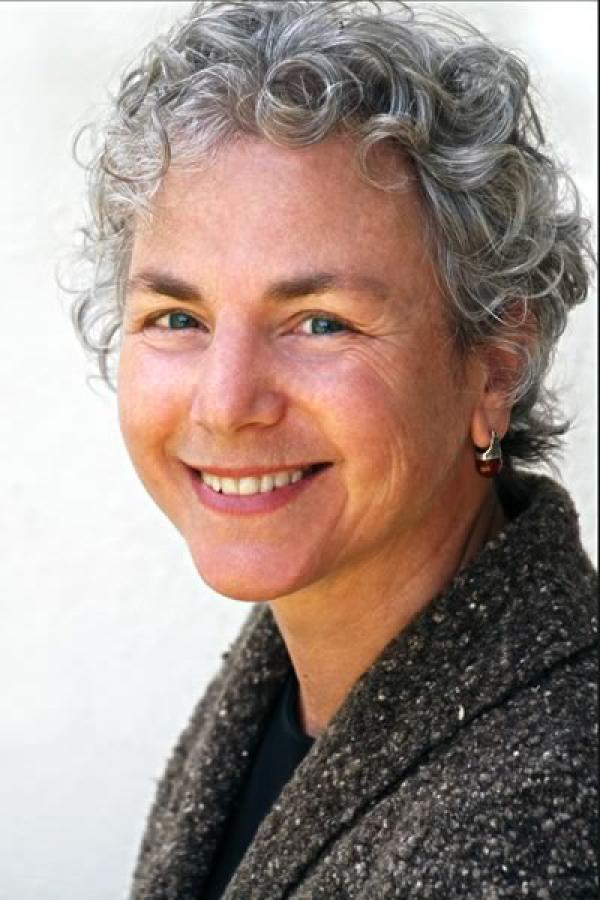Ellen Bass

Photo by Irene Young
Bio
Ellen Bass's poetry includes Like A Beggar (Copper Canyon Press, 2014), The Human Line (Copper Canyon Press, 2007), and Mules of Love (BOA, 2002). She co-edited (with Florence Howe) the groundbreaking No More Masks! An Anthology of Poems by Women (Doubleday, 1973. Her non-fiction books include The Courage to Heal: A Guide for Women Survivors of Child Sexual Abuse (HarperCollins, 1988, 2008), which has been translated into twelve languages, and Free Your Mind: The Book for Lesbian, Gay and Bisexual Youth (HarperCollins, 1996). Her work has frequently been published in The New Yorker, The American Poetry Review and many other journals. Among her awards for poetry are a Pushcart Prize, Lambda Literary Award, Elliston Book Award, Pablo Neruda Prize from Nimrod/Hardman, Larry Levis Prize from Missouri Review, and New Letters Prize. She lives in Santa Cruz, CA and teaches in the MFA writing program at Pacific University.
Author's Statement
Writing poetry is not efficient. It takes so much time, not only hours on the clock, but psychic space, time to read, time to pay attention, time to write without knowing what you'll write. Time to write poems that are not so good. Or not good at all. Time to move the words around, the lines around, this way and that, over and over, adding and taking away, only to find the whole poem was a sincere attempt, but ultimately a failure. A poem that perhaps will turn out to be the first try of many that will lead one day to a better poem. Time to read poetry and let it sink into your bones, dissolve there, so that when you write, those poems you've read are in your poems. Time to read poems aloud. To learn poems by heart. Time to take long walks and time to sit looking out the window. This is a kind of time that I've managed to save for poetry throughout my life, but I've never had as much of it as I really want or need. I've been the primary support for my family for more than four decades and though I've managed to balance writing and paying work reasonably well, I always looked forward to "later," when I would have more time for poetry. I'm 67 years old. "Later" is "now." Not only will this Fellowship from the National Endowment for the Arts provide the necessary funds to allow me to cut back on my teaching, but I also receive it as a message from the universe that I shouuld follow my desire—the best compass I know. Last, and very importantly, it gives me a bit more confidence each time I face that still—after all these years—frightening blank page.
Waiting for Rain
Finally, morning. This loneliness
feels more ordinary in the light, more like my face
in the mirror. My daughter in the ER again.
Something she ate? Some freshener
someone spritzed in the air?
They're trying to kill me, she says,
as though it's a joke. Lucretius
got me through the night. He told me the world goes on
making and unmaking. Maybe it's wrong
to think of better and worse.
There's no onewho can carry my fear
for a child who walks out the door
not knowing what will stop her breath.
The rain they say is coming
sails now over the Pacific in purplish nimbus clouds.
But it isn't enough. Last year I watched
elephants encircle their young, shuffling
their massive legs without hurry, flaring
their great dusty ears. Once they drank
from the snowmelt of Kilimanjaro.
Now the mountain is bald. Lucretius knows
we're just atoms combining and recombining:
star dust, flesh, grass. All night
I plastered my body to Janet,
breathing when she breathed. But her skin,
warm as it is, does, after all, keep me out.
How tenuous it all is.
My daughter's coming home next week.
She'll bring the pink plaid suitcase we bought at Ross.
When she points it out to the escort
pushing her wheelchair, it will be easy
to spot on the carousel. I just want to touch her.
(From Like a Beggar. Copyright ©2014 by Ellen Bass. Used with permission of The Permissions Company, Inc. on behalf of Copper Canyon Press)

